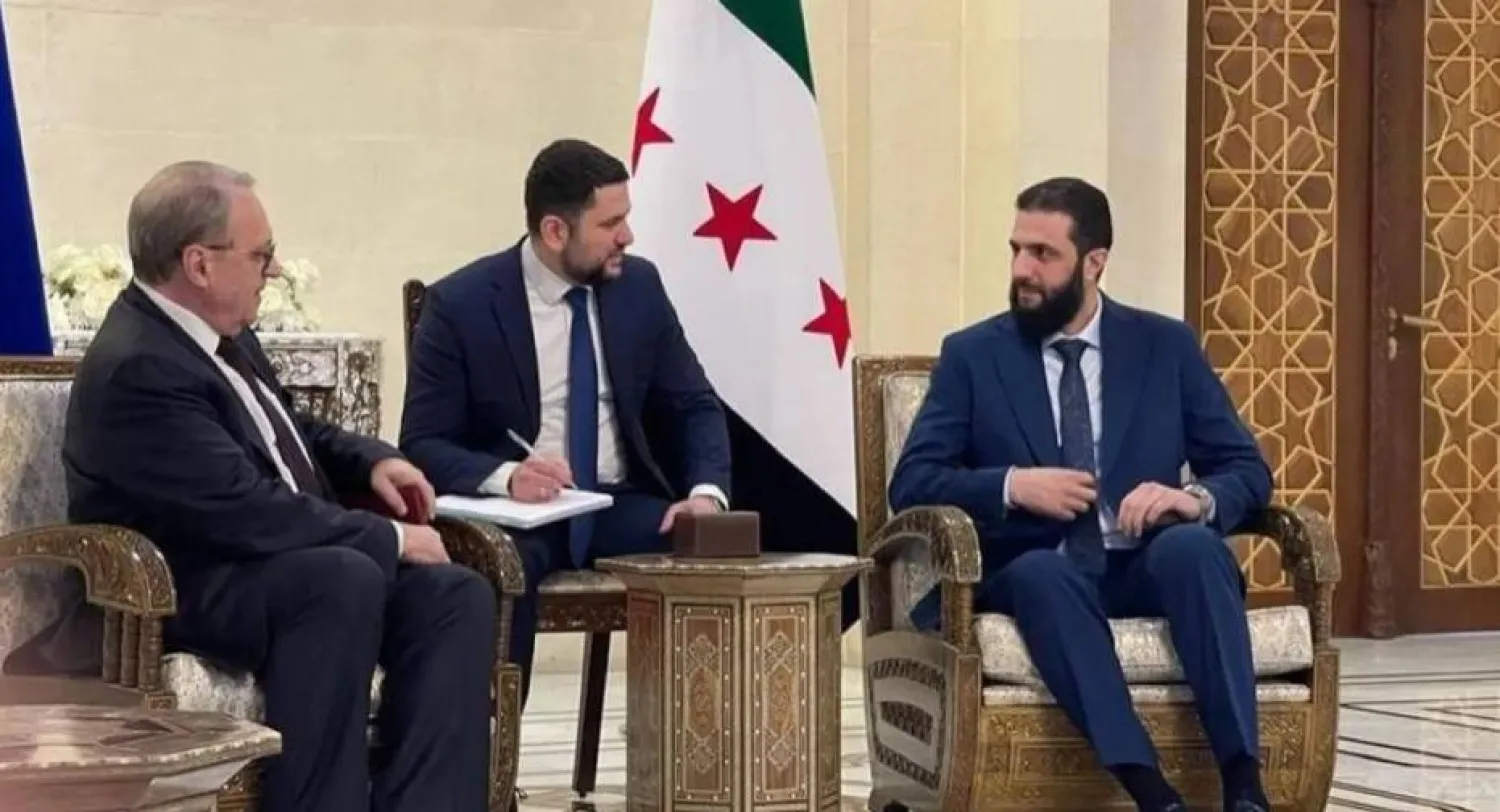Russian President Vladimir Putin has sent a message to his Syrian counterpart, Ahmad al-Sharaa, the Kremlin announced on Thursday, underscoring its significance in both timing and content against the backdrop of recent developments in Syria’s coastal regions and mounting challenges to the country's leadership.
The message comes as Damascus navigates efforts to bolster internal stability and expand engagement with regional and international players.
According to the Kremlin, Putin reaffirmed Russia’s readiness to strengthen cooperation with Syrian authorities across all sectors.
Kremlin spokesman Dmitry Peskov said the message expressed support for the Syrian leadership’s efforts to “swiftly stabilize the situation in the country while ensuring its sovereignty, unity, and territorial integrity.”
Peskov did not specify when Putin sent the message to al-Sharaa or whether it was delivered through an envoy. However, his remarks during a daily briefing suggested Putin had sent it on Wednesday.
The letter carried a notable phrasing, reaffirming Moscow’s commitment to “developing practical cooperation with the Syrian leadership across the full spectrum of bilateral issues to further strengthen the traditionally friendly Russian-Syrian relations.”
While the message underscored Putin’s intent to recalibrate ties and establish serious, “practical” cooperation with Damascus, its timing was equally significant.
It followed Syria’s success in containing the fallout from recent unrest in coastal regions—an event that had sparked allegations, albeit indirect, that Moscow had either supported or turned a blind eye to a military move by remnants of the ousted regime.
These claims were fueled by reports that dozens of former Syrian officers had sought refuge in Russia after Bashar al-Assad’s government was toppled.
Russia has not officially responded to allegations that it played a role in recent unrest in Syria’s coastal region.
The Kremlin and the Foreign Ministry have limited their statements to expressing “serious concern” over the turmoil, which later led to arrests and targeted killings of civilians.
A Russian diplomatic source previously told Asharq Al-Awsat that Moscow had no involvement in the events and stressed that Russian authorities do not support any actions that could undermine stability in Syria.
Against this backdrop, Putin’s message appears “deliberate in both tone and timing,” signaling Moscow’s intent to reset ties and usher in a new phase of cooperation aligned with the interests of both sides.









